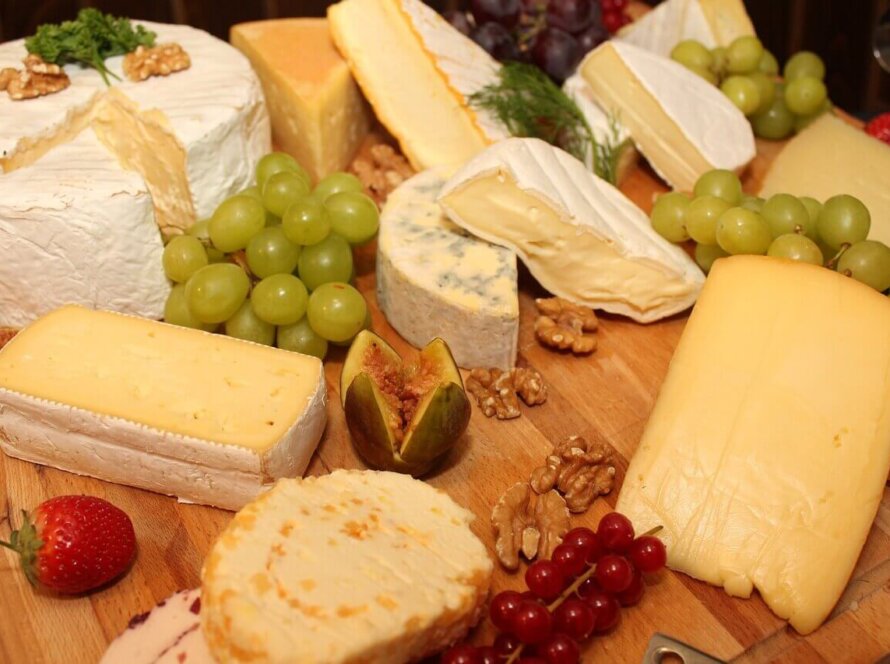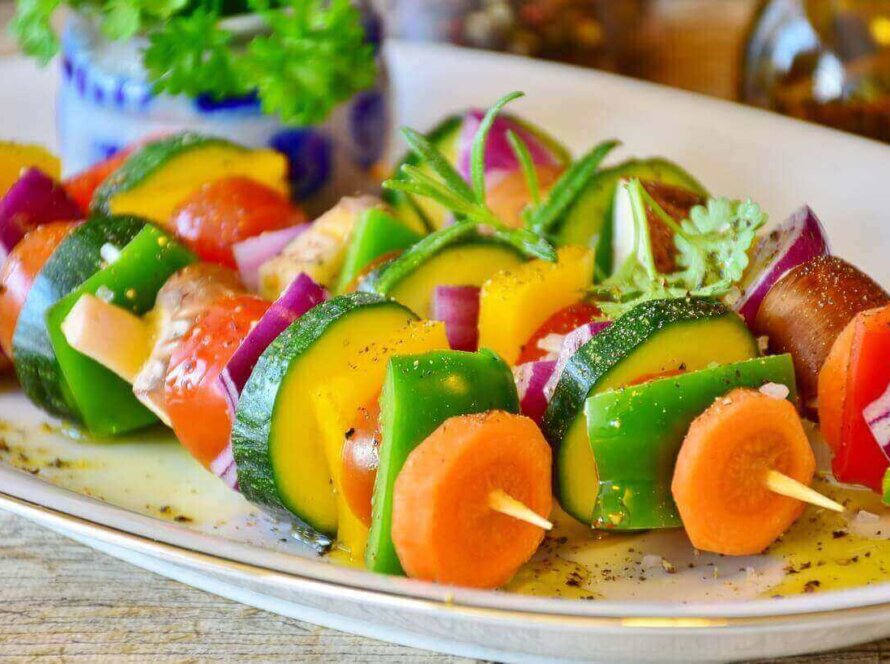Estimated reading time: 25 minutes
Table of contents
- What Are High-Protein Foods
- Essential amino acids
- How many grams of protein do you need?
- How much protein can the body absorb per sitting?
- The Top 35 High-protein foods
- 1. Beef Biltong 53g
- 2. Chicken Biltong 51.1g
- 3. Chicken breast (grilled, without skin) 32g
- 4. Pork chop (lean, grilled) 31.6g
- 5. Beef steak (lean, grilled) 31g
- 6. Lambchop (lean, grilled) 29.2g
- 7. Tuna (canned in brine) 27.9g
- 8. Salmon (grilled) 25.4g
- 9. Cod (baked) 24.9g
- 10. Mackerel (grilled) 24.6g
- 11. Crab (canned in brine) 23.9g
- 12. Mussels (cooked) 21.1g
- 13. Prawns (cooked) 20.3g
- 14. Chicken egg (whole, boiled) 18.1g
- 15. Dairy Whole milk 17.7g
- 16. Semi-skimmed milk 15.4g
- 17. Skimmed milk 14.7g
- 18. Cheddar cheese 14.1g
- 19. Cottage cheese 12.2g
- 20. Plain Greek-style yoghurt 10.9g
- 21. Plain low-fat yoghurt 9.4g
- 22. Red lentils (boiled) 8.1g
- 23. Chickpeas (canned) 7.9g
- 24. Tofu (steamed) 7.9g
- 25. Kidney beans (canned) 7.6g
- 26. Baked beans 7.2g
- 27. Wheat flour (brown) 6.9g
- 28. Rice (easy cook, boiled) 5.7g
- 29. Bread (brown) 5g
- 30. Bread (white) 4.8g
- 31. Pasta (dried cooked) 4.8g
- 32. Porridge oats 3.5g
- 33. Almonds 3.5g
- 34. Walnuts 3.4g
- 35. Hazelnuts 3g
- Plant Protein vs. Animal Protein
- What are the benefits of High Protein Foods?
- How to include High Protein Foods in your diet
- High Protein Foods Summary
High-protein foods are an important part of a healthy diet. They give your body the nutrients it needs to function properly and stay fit. Jump straight to the top 35 high-protein foods on our list.
What Are High-Protein Foods
High-protein foods are foods that contain high amounts of essential amino acids, which are the building blocks of proteins.
These food sources are generally derived from animal and plant sources, including meat, poultry, fish, eggs, dairy products (milk, yoghurt and cheese), legumes (beans and lentils), nuts and seeds.
High-protein diets have been known to help build muscle mass and aid in weight loss due to the feeling of fullness they provide.
They also provide many essential vitamins and minerals that some other food groups may not have in adequate amounts.
Eating a variety of these high-protein foods can help you reach your daily protein needs and healthy weight gain. The average adult should consume 0.8 g of protein per kilogram of body weight each day.
You don’t have to eat meat
High-protein snacks such as nuts or hardboiled eggs make great meal options for those looking to meet their protein goals without adding too many calories.
Vegetarians can still get enough protein thanks to alternative sources such as soy products, quinoa, tempeh and seitan.
High-protein diets do require careful monitoring however as there has been evidence linking them with elevated cancer risk if consumed excessively or over long periods of time.
You should seek professional advice before introducing any changes to your diet that involve increasing your intake of high-protein foods significantly.
Essential amino acids
Amino acids are the building blocks of protein. There are two types of amino acids: essential and non-essential amino acids.
The body cannot make essential amino acids, so we must get them from our food. On the other hand, the body can make, but it’s still important to include them in our diet because they play important roles in our health.
Nine essential amino acids
The essential amino acids are leucine, isoleucine, valine, lysine, methionine, threonine, phenylalanine, and tryptophan.
They are all necessary for good health and work together to build strong muscle mass and promote bone health. They also help us fight off infection and disease.
How many grams of protein do you need?
You need some protein every day to be healthy. Enough protein helps build strong muscles and bones. It also helps us fight off infection and disease.
How much protein you need depends on your age and sex. Most adults need around 50-70 grams per day, which is enough protein to maintain good health.
Sportsmen and women need more and bodybuilders can consume as much as 6g of protein per kilogram of body weight.
Always consult a professional nutritionist when creating a protein-rich diet plan
How much protein can the body absorb per sitting?
The human body is able to absorb a limited amount of protein per sitting. This limit is about 30 grams, although the absorption rate varies depending on the person’s digestive system and the type of protein consumed.
High-quality proteins, such as the ones we find in animal products, are more easily absorbed by the body than plant-based proteins.
This is a contentious subject which needs more research. Also, a clearer definition of “absorption” is required.
Your bloodstream can absorb unlimited protein
When you define protein absorption as “the passage of nutrients from the gut into systemic circulation” the answer changes to unlimited…
More importantly, you should focus on maximizing protein intake. You should also aim to consume the right type of protein for the circumstances.
For example, whey protein is best for pre/post workout whereas whole food protein sources are best at other meal times.
The Top 35 High-protein foods
I have listed the top 36 healthy protein foods below. We have used the protein contents per 100g as a measure to rank the protein foods.
1. Beef Biltong 53g

Beef biltong is a high-quality protein food that is derived from lean beef. It is a type of jerky that is made by drying the meat as opposed to smoking it as you would with jerky, you then season it with spices.
Biltong is a popular snack in many countries with its origins in Southern Africa, and it is high in protein, healthy fats and other essential nutrients.
When it comes to delicious high-protein foods Beef Biltong is my personal favourite!
Paul Mills, Personal Trainer
2. Chicken Biltong 51.1g
Chicken biltong is a high-quality protein food that is derived from chicken. It takes about 300g of chicken to make 100g of chicken biltong. As a result chicken, biltong is a very expensive protein source compared to other sources.
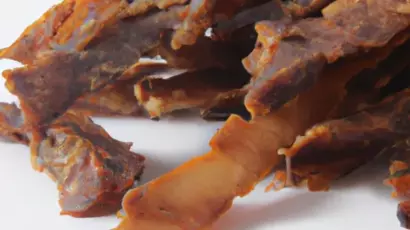
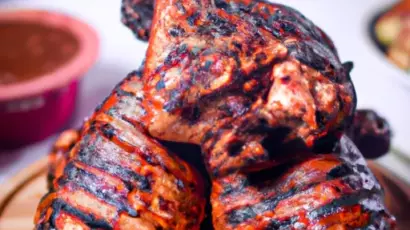
3. Chicken breast (grilled, without skin) 32g
Chicken breast is an excellent source of protein. It contains 32 grams of protein, which can help you meet your daily needs. Chicken breast is also low in fat and calories, making it a healthy choice for anyone looking to lose weight or maintain a healthy lifestyle.
4. Pork chop (lean, grilled) 31.6g
Pork chops are a great way to get your daily dose of protein. Lean and grilled, they make for a healthy and delicious meal.
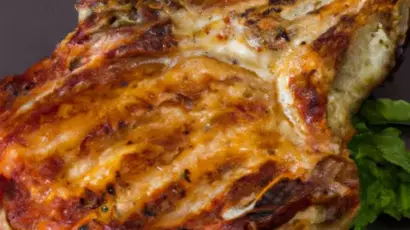
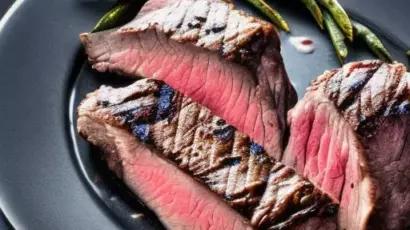
5. Beef steak (lean, grilled) 31g
Beef steak is an excellent source of protein. It is lean and grilled, making it a healthy choice. With a protein content of 31 grams per 100g, it is an excellent way to get your daily dose.
6. Lambchop (lean, grilled) 29.2g
Lambchop is a great source of protein for people who are looking to add more protein to their diets. A typical lamb chop contains 29.2 grams of protein, making it a good choice for anyone looking for a high-protein meal. You can grill or pan-fry lamb chops which makes them a versatile and convenient option for a quick and healthy meal.
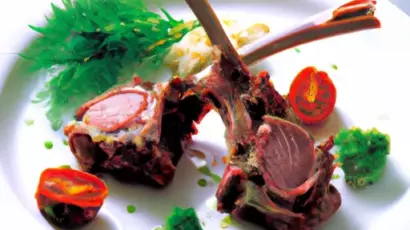
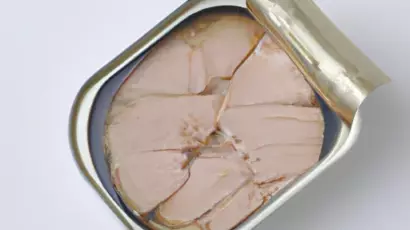
7. Tuna (canned in brine) 27.9g
Canned tuna is an excellent source of protein, and it’s low in fat and calories. It’s also a good source of omega-3 fatty acids, which are beneficial for your health. Tuna is a versatile food that you can use in many different recipes.
8. Salmon (grilled) 25.4g
Salmon is an excellent source of protein, containing 25.4 grams of protein per serving. It’s also a good source of omega-3 fatty acids, which are beneficial for your health.
Salmon is a versatile food which we can grill, bake, or smoke.
Get your heart in the pink of health with a dose of fatty fish! Salmon, sardines, mackerel and anchovies are all packed full to the brim with essential omega-3s.
These good fats do wonders for our bodies – they may be tiny but there’s no denying their power when it comes to keeping us healthy!
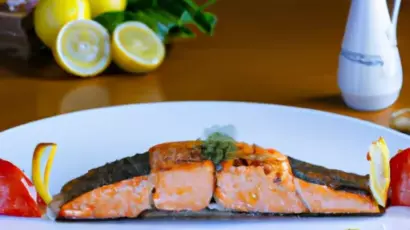
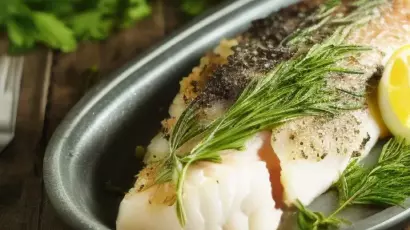
9. Cod (baked) 24.9g
Cod is a reliable protein source. It contains 24.9 grams of protein per serving, making it a perfect choice for anyone looking for a high-protein meal. Cod is also low in fat and calories, making it a healthy and nutritious choice.
10. Mackerel (grilled) 24.6g
Mackerel (grilled) is a great source of protein, containing 24.6g per serving. It’s also low in fat and calories, making it a healthy option for those looking to boost their protein levels. Mackerel can be grilled or baked, making it a versatile and tasty addition to any meal.
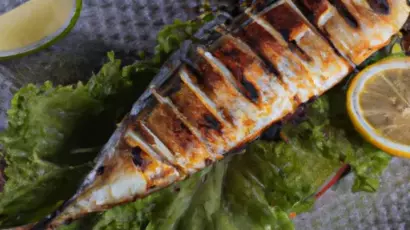

11. Crab (canned in brine) 23.9g
Crab canned in brine is a high-protein food that can help you meet your daily nutritional needs. This seafood contains 23.9 grams of protein per serving, making it a valuable addition to any diet. Crab is also a good source of omega-3 fatty acids. Healthy fats are important for maintaining heart health and preventing chronic diseases.
12. Mussels (cooked) 21.1g
Mussels are a great option for a protein source. They contain 21.1 grams of protein per 100g serving, which is in the top tier of seafood protein sources. Additionally, mussels are low in fat and calories, making them a healthy choice for anyone looking to add more protein to their diet.
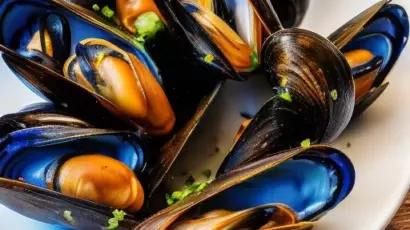
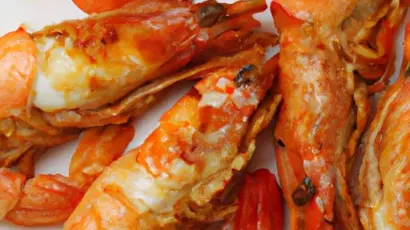
13. Prawns (cooked) 20.3g
Did you know that prawns are an excellent choice to up your protein intake? In fact, a single serving of cooked prawns contains more than 20 grams of protein. That places it in the top tier for seafood, and it’s sure to give you the energy you need to power through your day.
14. Chicken egg (whole, boiled) 18.1g
A chicken egg is a whole, boiled chicken egg. It contains 18.1g of protein, making it a high-protein food. The protein in eggs is of the highest quality, providing all the essential amino acids your body needs to perform optimally.
Eggs are also a good source of choline, vitamin A, and selenium.

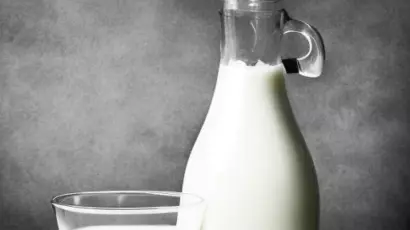
15. Dairy Whole milk 17.7g
Dairy Whole milk is a high-protein food that can help you reach your daily protein goals. With 17.7g of protein per serving, dairy whole milk is an excellent protein-rich option for people who are trying to increase their intake.
Dairy whole milk also contains healthy fats and other essential nutrients, such as calcium and vitamin D, which make it a healthy choice for everyone.
16. Semi-skimmed milk 15.4g
Semi-skimmed milk is a great way to add protein for people who are looking to increase their intake of nutrients.
A single glass of the drink contains around 15 grams of protein, making it an excellent choice for those who are trying to build muscle or simply maintain their health.
Additionally, semi-skimmed milk is a good source of other nutrients such as calcium and vitamin D.


17. Skimmed milk 14.7g
Skimmed milk is an excellent protein provider. It contains 14.7 grams of protein per cup, making it an excellent choice for people who are looking to boost their protein intake. Skimmed milk is also low in fat and calories, making it a healthy option overall.
18. Cheddar cheese 14.1g
Did you know that cheddar cheese is a high-protein food? In fact, it contains 14.1 grams of protein per serving. That’s more than most other types of cheese!
Cheddar cheese is also a good source of calcium and vitamin B12. So if you’re looking for a nutritious snack that will help you stay energized, cheddar cheese is a great choice.
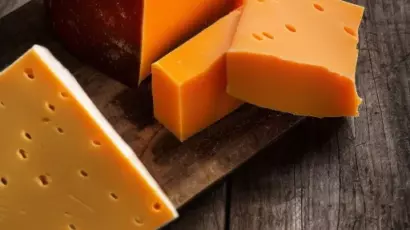

19. Cottage cheese 12.2g
Cottage cheese contains more than 12 grams of protein per serving. That’s more than most other dairy products, and it makes cottage cheese a great choice for people who are looking to boost their protein intake.
Cottage cheese is also low in fat and calories, making it a healthy option overall.
20. Plain Greek-style yoghurt 10.9g
Greek-style yoghurt is a high-protein food that provides many benefits for the body. It is a great source of protein, calcium, and vitamin D, all of which are important for maintaining good health.
Additionally, Greek-style yoghurt is low in fat and calories, making it a healthy choice for people who are trying to lose weight or maintain a healthy lifestyle.


21. Plain low-fat yoghurt 9.4g
Plain low-fat yoghurt is a High-Protein Food that is 9.4g per serving. Yoghurt is a dairy product that is made from the milk of cows, goats, or sheep.
The milk is fermented to produce lactic acid, which thickens and coagulates the milk protein to form yoghurt solids.
22. Red lentils (boiled) 8.1g
Red lentils are a high-protein food that should be part of any healthy diet. A single serving provides over 8 grams of protein, which is more than most other types of lentils. They are also a good source of dietary fibre, potassium, and magnesium.
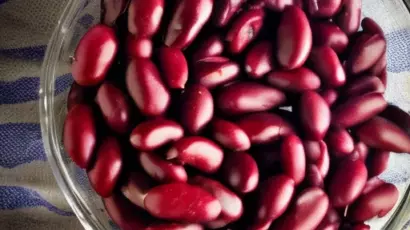

23. Chickpeas (canned) 7.9g
Chickpeas are a high-protein food that you can enjoy in a variety of ways. They are especially popular in Mediterranean and Indian cuisine but you can add them to any dish for an extra protein boost. Chickpeas are also rich in fibre, vitamins, and minerals, making them a healthy addition to any diet.
24. Tofu (steamed) 7.9g
Tofu is a high-protein food that is made from soybean curds. Vegetarians and vegans find this a popular meat substitute. It has a mild flavour which you can enhance by marinating or flavouring it with sauces. Tofu is also low in calories and cholesterol-free.

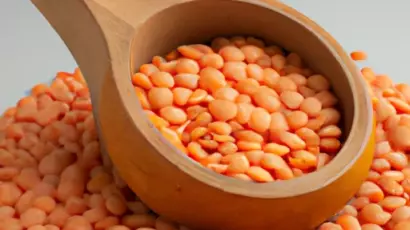
25. Kidney beans (canned) 7.6g
Kidney beans are a high-protein food that we often overlook. They are packed with fibre, antioxidants, and vitamins, making them a healthy addition to any diet.
26. Baked beans 7.2g
Baked beans are a high-protein food that can help you reach your daily protein goals. One cup of baked beans contains 7.2 grams of protein, which is enough to help you meet your daily needs. Baked beans are also a good source of fibre, potassium, and magnesium, making them a healthy choice for any meal.
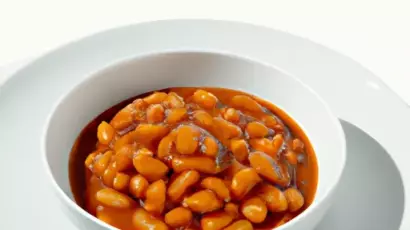
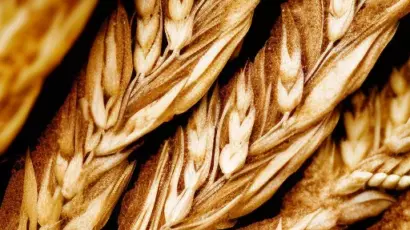
27. Wheat flour (brown) 6.9g
Wheat flour (brown) is a high-protein food that can help you feel fuller longer. It is also a good source of fibre, which can help keep your digestive system healthy. Wheat flour (brown) contains 6.9 grams of protein per 100g and is a great choice if you are looking for a nutritious snack or meal option.
28. Rice (easy cook, boiled) 5.7g
Wheat flour is a type of flour made from grinding wheat. It is the most common type of flour used in baking. Wheat flour contains gluten, which gives baked goods structure and chewiness. There are many different types of wheat flour, including all-purpose, bread, pastry, and whole-wheat.
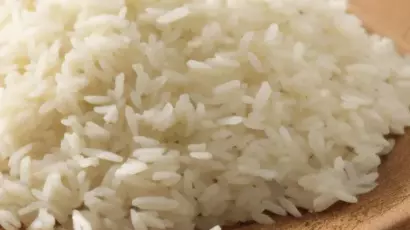
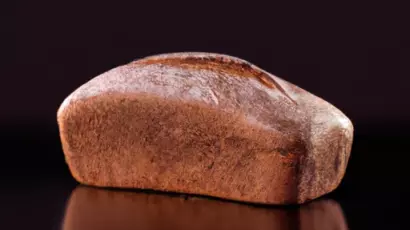
29. Bread (brown) 5g
Bread (brown) is a high-protein food that can help you feel fuller longer. It’s also a good source of fibre, which can help keep your digestive system functioning properly.
30. Bread (white) 4.8g
Bread (white) may not be the most nutritious food out there, but it is high in protein. In fact, a single slice of white bread contains between 1.8 and 4.8 grams of protein. So if you’re looking for a quick and easy way to boost your protein intake, reach for a slice of white bread.
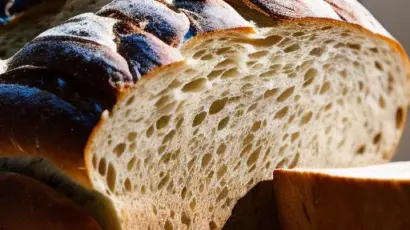
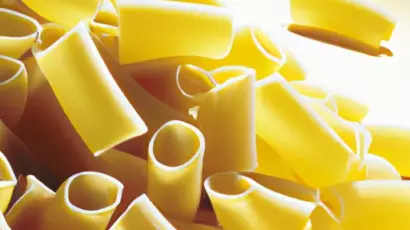
31. Pasta (dried cooked) 4.8g
Pasta is a high-protein food that provides many essential nutrients. It is a good source of thiamin, riboflavin, niacin, and vitamin B6.
Pasta also contains some minerals, including magnesium, potassium, and zinc. Magnesium is important for the contraction of muscles, including the heart muscle; potassium helps maintain fluid balance and nerve function, and zinc is necessary for wound healing.
32. Porridge oats 3.5g
Oats are a high-protein food that provides many health benefits. They are an excellent source of fibre, which can help to regulate digestion, and they also contain antioxidants that can protect against disease. Oats are especially beneficial for people who are trying to lose weight or manage their blood sugar levels, as they can help to control hunger and stabilize blood sugar levels.
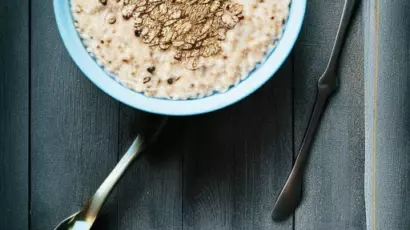
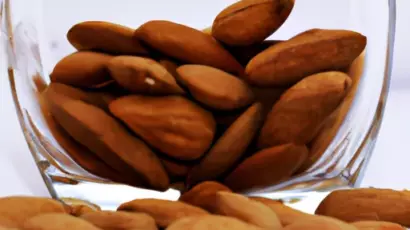
33. Almonds 3.5g
Almonds are a high-protein food perfect for people looking to add more protein to their diets. They are also a great fibre, vitamin E, and magnesium source.
34. Walnuts 3.4g
Walnuts are a great protein source. In fact, they contain more protein than any other nut. They are also a good fibre, vitamin E, and magnesium source.
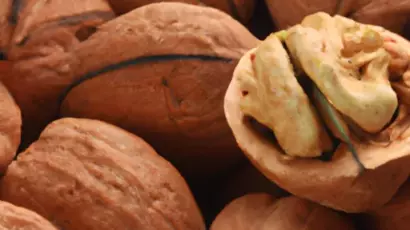
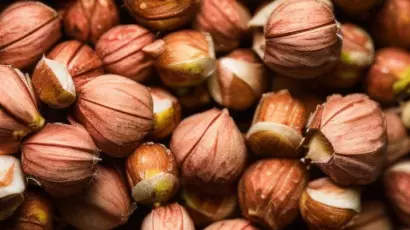
35. Hazelnuts 3g
Hazelnuts are a great protein source. In addition to being high in protein, they are also a good source of fibre, potassium, and vitamin E. Hazelnuts are an excellent source of monounsaturated fatty acids, which have been shown to promote heart health.
Plant Protein vs. Animal Protein
There are many different types of protein in the world. We can categorise them as either plant proteins or proteins derived from animals.
Plant protein is derived from plants, while the latter is derived from animal foods.
Both types of protein have their own unique benefits and drawbacks.
Plant-based Protein
There are many benefits to consuming plant-based proteins. Plant foods are lower in calories and fat than animal-based proteins, and they are also cholesterol-free.
Plant-based protein foods such as pumpkin seeds are high in fibre, which can help to regulate digestion, and they are a good source of antioxidants, vitamins, and minerals.
However, there are some disadvantages to consuming plant-based proteins. They often lack certain essential amino acids that the body needs to function properly.
This can make it difficult to get all of the nutrients the body needs from plant-based proteins alone.
Additionally, plant proteins can be more expensive than animal-based proteins. Furthermore, you also need to consume much more plant-based protein sources are usually less concentrated.
Animal Based Proteins
We consider animal-based protein to be a complete protein because it contains all the essential amino acids needed to form a protein. They are also a good source of dietary iron and zinc.
However, they can also be high in saturated fat and cholesterol, which can contribute to heart disease and other health problems if not consumed as part of a balanced high-protein diet.
What are the benefits of High Protein Foods?
High-protein foods are an important part of a healthy diet. They give your body the nutrients it needs to function properly and stay fit.
It also provides many essential vitamins and minerals that some other food groups may not have in adequate amounts.
Eating a variety of these high-protein foods can help you reach your daily protein needs; the average adult should consume 0.8 g of protein per kilogram of body weight each day.
High-protein diets have been known to help increase muscle mass and aid in weight loss due to the feeling of fullness they provide.
These high-protein foods also provide many essential vitamins and minerals that some other food groups may not have in adequate amounts.
You should seek professional advice before introducing any changes to your diet that involve increasing your intake of high-protein foods significantly
How to include High Protein Foods in your diet
One great way to include more high-protein foods in your diet is by incorporating them into your breakfasts.
Start the day by having a protein-rich breakfast like scrambled eggs, an omelette packed with veggies and cheese or some Greek yoghurt with nuts and seeds. You can also try overnight oats with chia seeds!
Biltong
Eat foods like beef biltong as it can help you reach your dietary protein goals and is great as a snack especially if you are on a weight loss plan.
Biltong is a high-protein snack that is made from beef or chicken. It is dried and cured with spices, and can be eaten as a snack or added to meals.
Biltong is a great source of protein and contains many essential vitamins and minerals.
Protein Supplements
Whey protein powder is a trusted method of managing protein consumption and curing any protein deficiency in your diet.
Sportspeople, gym goers and bodybuilders like protein powders due to their high protein content, ease of consumption and convenience.
Protein powder contains all the amino acids and as part of a balanced diet can satisfy most peoples’ protein needs.
Protein powders come in different flavours and can be used in baking as well as consumed directly as a shake.
Nuts and Seeds
Nuts like peanuts, walnuts, almonds, hazelnuts and seeds like pumpkin seeds or sunflower seeds form a core part of a vegetarian or vegan diet.
The high protein content in natural peanut butter makes it a great weapon to combat protein deficiency in your diet. You can easily consume it in fairly large quantities with few associated negatives.
You can easily add sunflower seeds and pumpkin seeds to a healthy sourdough bread recipe and they work great when mixed in with some cooked lentils.
Bread in general is not ideal as a healthy food due to all the preservatives and sugar. However, a healthy sourdough bread made from whole grains is a good alternative.
Whole Grains and Pulses
Pea protein foods are part of the pulses category and combined with whole grain foods are a great foundation for healthy vegetarian meals.
You can also combine dairy foods like greek yoghurt with whole grains and muesli to boost your morning protein at breakfast!
More About Meat
Red and processed meat are often lumped into the same category and blamed for high cholesterol. However red meat gets a bad wrap which it does not fully deserve.
Red meat can help with healthy weight gain. Conversely consuming large amounts of processed meat will work against any weight loss (fat loss) plans you have.
When you are faced with a choice between red or processed meat, the answer is clear. Go for red meat and ditch processed meats such as bacon, sausage or salami.
Red meat
Red meat contains all 9 essential amino acids and more than enough protein to satisfy the needs of most people.
Eating red meat is sometimes vilified by the medical profession and some animal rights campaigners, however, it is one of the best high-protein foods.
Lean meat is the most protein-rich food and an age-old source of complete protein. Red meat on average has a protein content of more than 30% which is roughly 10% more than its nearest rival.
When you consume red meat or lean meat as biltong, this figure shoots up to over 50 or even 60% in some cases.
Processed meats
Processed meat unlike red meat deserves to be labelled as a food which contributes to heart disease risk factors as a result of its high-fat content and preservation methods.
Bacon, sausages and hamburger minced meat are literal cholesterol bombs and whilst tasty should be avoided as part of a healthy diet. Moreover, it will annihilate any weight loss ambitions you may have.
High Protein Foods Summary
There are loads of protein-rich foods with enough protein content to even suit a vegan diet.
The trick is to make sure you get all your key nutrients in the correct amounts. You should also take care that your dietary protein comes from different foods. These foods should be high in protein content, low in fat and NOT processed.
LET ME KNOW WHAT YOUR FAVOURITE HIGH-PROTEIN FOOD IS IN THE COMMENTS BELOW!


